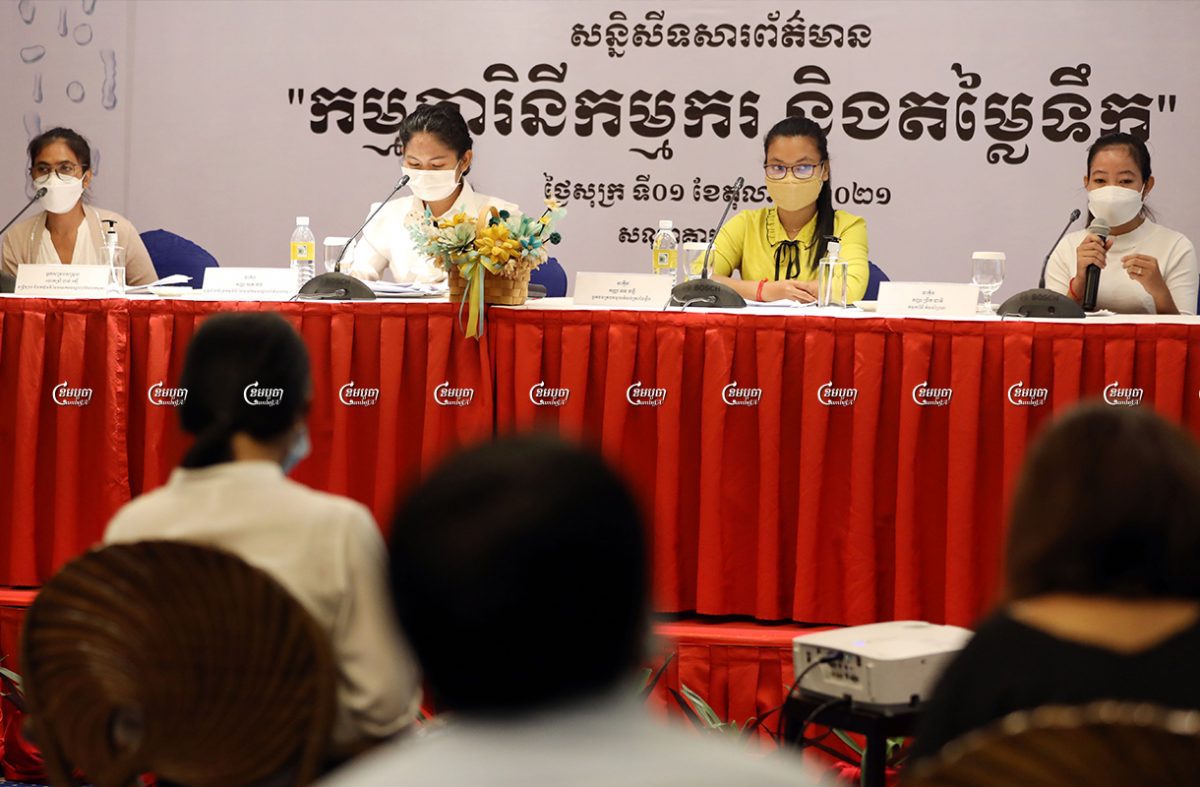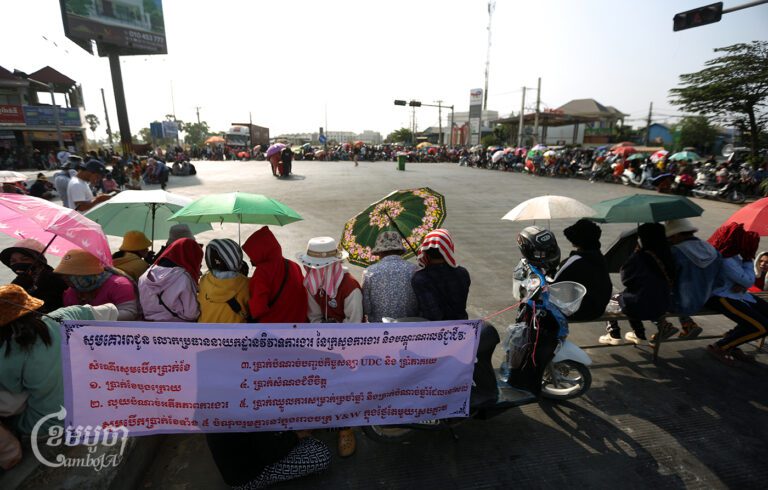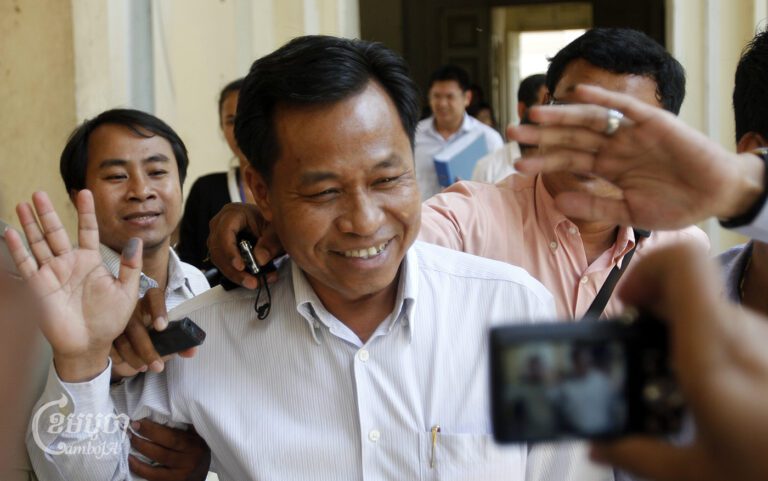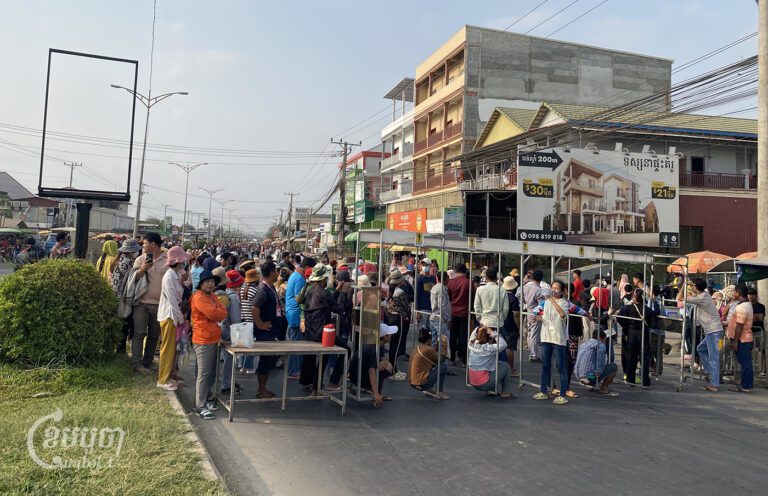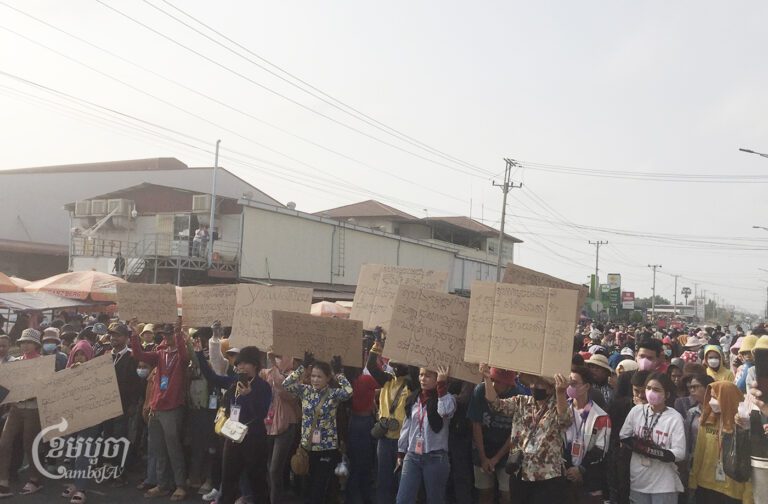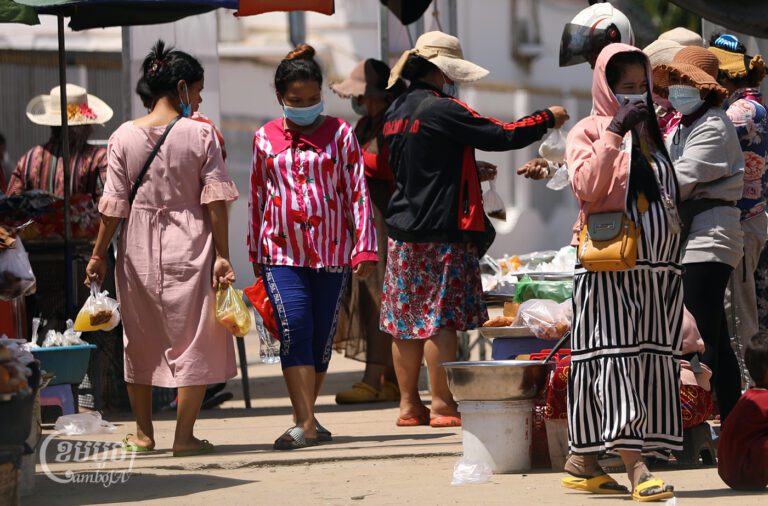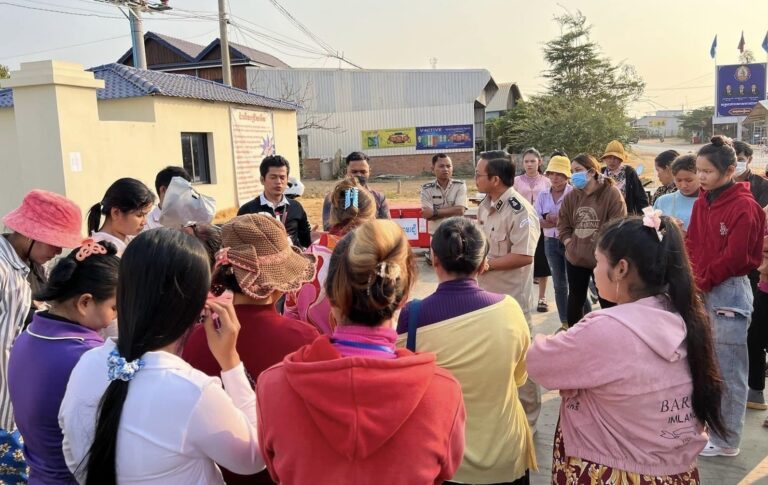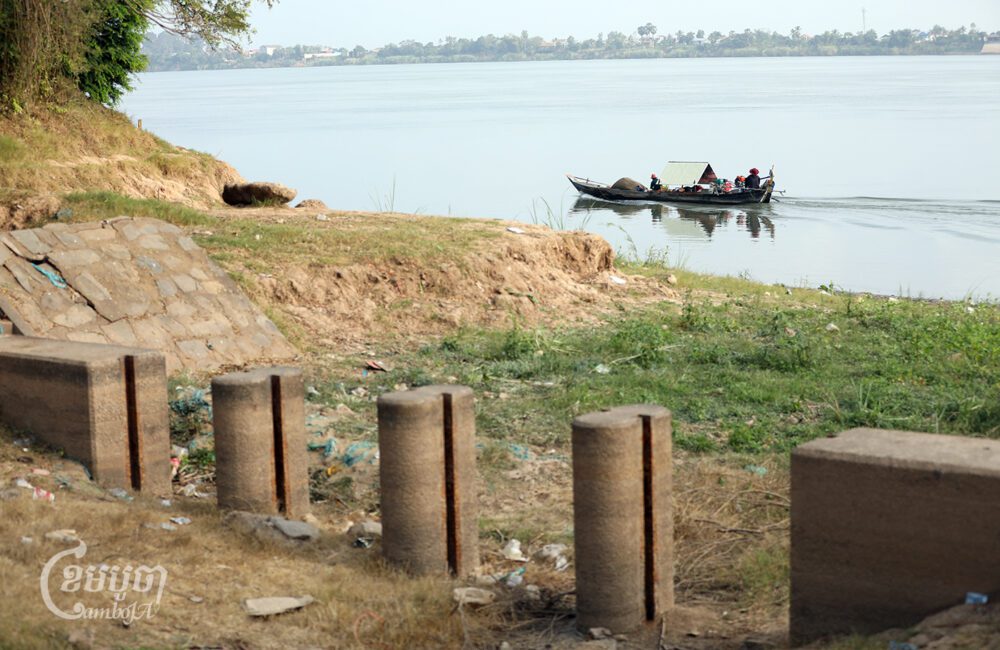Garment workers have called on the government to intervene to ensure that rental house owners are not charging lodgers more than the fixed water price of 800 riel per cubic meter set four years ago, saying that they were struggling to keep up with the high cost of utilities.
Speaking at a press conference organized by the Workers’ Information Center association of garment workers, Chroek Davy, 24, a garment factory worker staying in a rental house in Pur Senchey district’s Choam Chao 3 commune in Phnom Penh, said at that the owner of her rental house took 2,000 riel for every cubic meter used.
“I used three cubic meters per month,” she said. “It’s a small figure because I save water for later use, and I just use the water in the morning and the evening because I go to work every day.”
Davy said that she does not dare to use more water than that out of concern for the cost.
“If the rental house owner charged for the water at the state’s fee of 800 riel, I would need to spend only 2,400 riel per month, so I could keep 3,600 riel for food expenses,” she said.
Davy said that the Industry Ministry announced the water price of 800 riel per cubic meter more than four years ago. Despite this, there is no law preventing home owners from charging their lodgers more. If she counted the money that she paid above the state water price since 2017, Chanthy said, she would have saved more than $40.
“This money is not much for other people,” she said. “But for me, it is big money, because I need to work hard to make money.”
Along with the high water bills, she said, she needed to pay back more than $100 a month to the bank — on top of other expenses.
“I need to pay $50 for the rental room fee and 2,000 riel per cubic meter and pay the electricity, so I have to pay my whole salary right back,” she said.
Chhorn Chanthy, 25, another garment worker in Phnom Penh’s Pur Senchey district, said that she lives in one of 300 rental rooms belonging to a single owner. She said that she needs to pay 7,500 riel every month to cover her water bill.
Chanthy was staying in her room when the Phnom Penh municipal authorities declared the district a red zone in April this year to fight the rapid spread of COVID-19. During this time, she said, the government appealed to all rental house owners to decrease the monthly fee, motivating Chanthy and other workers to negotiate the rent down to half the amount for three months.
“However, rental house owners still took the price of water and electricity from workers,” she said.
Chanthy said that even though the government had announced that all people living in red zones should be exempt from paying for water and electricity for three months, she and other workers had still been forced to cover the cost of their utilities.
“During the lockdown period, I used water and electricity twice as much because we did not go to work, and we stayed in the room everyday,” she said.
She added that the minimum wage had increased only $2 for 2022 above the current minimum wage of $192, but that the cost of living and goods had kept on going up.
Tang Kim Sreng, a rental house owner in Phnom Penh’s Pur Senchey district, told CamboJA that the water price of his rental house is 2,000 riel because he needs to use a motor to pump the water to a reservoir on a high floor to direct the water to each of the more than 20 rental rooms in the building.
“If [any workers] think that the water price is expensive, they can go to live with another rental house owner,” he said.
Another rental house owner in Phnom Penh’s Russei Keo district Kuoy Veasna, said that the water price in his rental house is between 1,000 riel to 1,500 riel per cubic meter.
“It is not beneficial for this price, because I need to pump the water from the ground floor into the reservoir upstairs, so I need to pay more electricity fees,” he said.
Veasna said that if the state can do it, all workers should pay the water bill directly to the state, claiming that some workers who stay in his rental room secretly leave their lodgings without paying rent or utilities.
“It would be good if the authority can prepare the water supply like electricity,” he said.
Sot Phorng, part of the support program staff at the Workers’ Information Center, said that the association and workers had arranged many forums, inviting both water supply officers and relevant officials. The association has also sent an official letter to local authorities as well as the Ministry of Industry, Science, Technology and Innovation and the Interior Ministry and Council of Ministers.
“The Water Supply Authority told us that they have connected clean water for 500,000 workers in rental houses at 4,886 locations,” Phorng said.
She said that in addition, the association had sent a letter enclosing a survey of workers living over 41 blocks in Phnom Penh to the Water Supply Authority, but that the body had reviewed just 23 blocks of workers. Despite this, she said, they had recognized that the water price really was different from the state’s water price, ranging from 1,000 riel to 3,000 riel per cubic meter.
“We are happy with the intervention from the Water Supply Authority, but meanwhile some workers also had some problems with rental house owners,” Phorng said. She claimed that some workers had already been evicted while waiting for further government intervention.
Phorng said that in one case, the rental house owner had raised the water price from 1,500 riel to 5,000 for having gone to the authorities.
“I asked them why they changed like this, and they said that they changed it because workers had filed a complaint that shamed them,” she said. She claimed that another owner had doubled their water price following the intervention.
Government spokesman Phay Siphan said that in the past, the government had facilitated with Electricity of Cambodia to arrange a fixed electricity price for all workers to be paid directly to the utility rather than through rental house owners.
“If it has the request, I believe that the Water Supply Authority will consider it, and that they will solve it like the issue of electricity,” he said.
“I just request that the Water Supply Authority, which is an autonomous unit, please consider [the proposal] because the government showed the way of resolution about the electricity issue,” he said.
Long Naro, director-general of the Phnom Penh Water Supply Authority and Heng Sour, spokesman for the Ministry of Labor, could not be reached for comment.


